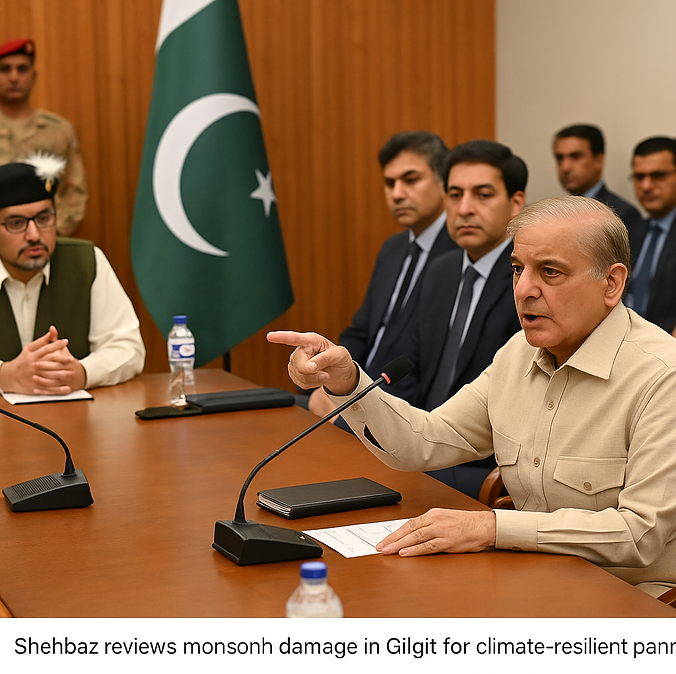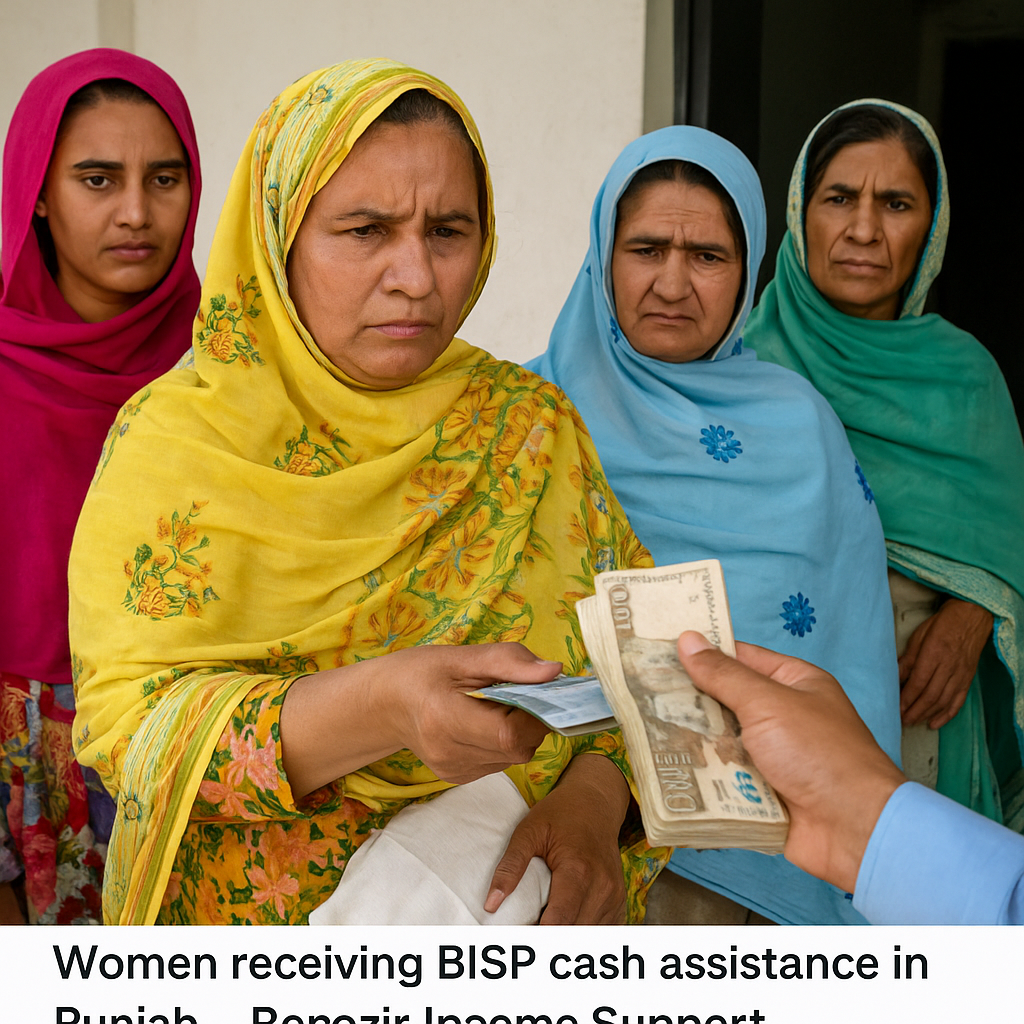Shehbaz Sharif Demands Climate Resilience Amid National Emergency
According to BBC News, Prime Minister Shehbaz Sharif has called for immediate financial mobilization to develop climate-resilient infrastructure across Pakistan, as deadly monsoon rains have now claimed at least 300 lives since late June. During his emergency visit to Gilgit city on August 4, 2025, the premier chaired a high-level meeting to assess the devastation caused by relentless downpours.
Pakistan, although contributing less than 1% to global carbon emissions, remains one of the most climate-vulnerable nations. The country is home to over 7,000 glaciers, yet consistently finds itself on the frontline of climate catastrophes—experiencing unprecedented heatwaves, flooding, droughts, and glacial melts over the past decade.
PM Calls for Climate Change Ministry to Secure International Funding
In his address, Sharif criticized the pace of action on climate adaptation. “We attend global climate conferences, but now it’s time to bring real results home,” he stated. “The Ministry of Climate Change must act swiftly and secure funds for sustainable infrastructure to shield our future generations.”
Sharif also met with families affected by the floods in Gilgit-Baltistan, distributing relief packages and reaffirming the government’s commitment to long-term recovery and infrastructure rebuilding.
Monsoon Rains Leave Devastation Across Provinces
According to the National Disaster Management Authority (NDMA), the monsoon disaster has impacted nearly every region of the country. Children represent nearly half of the fatalities—highlighting the tragic toll on vulnerable populations.
Table: Regional Breakdown of Rain-Related Deaths (as of August 4, 2025)
| Region | Deaths | Children | Men | Women |
| Punjab | 162 | – | – | – |
| Khyber Pakhtunkhwa | 70 | – | – | – |
| Sindh | 28 | – | – | – |
| Balochistan | 20 | – | – | – |
| Gilgit-Baltistan | 10 | – | – | – |
| Islamabad | 8 | – | – | – |
| Azad Jammu & Kashmir | 5 | – | – | – |
| Total | 300 | 140 | 103 | 57 |
Meteorological Warnings for More Rains and Flash Floods
The Pakistan Meteorological Department (PMD) has forecast intensified monsoon activity from August 4 onwards. Authorities have warned of potential flash floods in the northern regions including Chitral, Swat, Dir, and Abbottabad, and landslides in mountainous areas of KP, Gilgit-Baltistan, and Kashmir through August 7.
“Road blockages due to landslides may occur in hilly terrain during this period,” the report states, advising residents and travelers to remain cautious.
Previous Disasters Highlight Need for Urgent Adaptation
In recent years, Pakistan has witnessed repeated climate-induced disasters. In May 2025 alone, 32 people perished in violent windstorms. The catastrophic floods of 2022 submerged nearly one-third of the country, causing over 1,700 deaths, displacing 30 million people, and resulting in economic losses exceeding $35 billion.
These patterns underline the critical need for climate-resilient planning and emergency preparedness at both national and local levels.
Government Response and Public Expectations
While the Prime Minister’s response is seen as a vital step, climate experts urge consistent investment, not just emergency aid. Pakistan must prioritize urban drainage systems, flood barriers, and early warning networks to cope with intensifying weather patterns.
The federal government also faces growing pressure to engage with international institutions such as the Green Climate Fund and United Nations Environment Programme (UNEP) to secure financial assistance for sustainable development.
The current situation serves as a grim reminder that Pakistan can no longer afford to treat climate disasters as isolated events. With every passing year, the intensity and frequency of such calamities are rising—demanding not just emergency relief, but a comprehensive climate action strategy. Strengthening infrastructure, enforcing sustainable urban planning, and securing international climate financing must now be at the forefront of national policy. The path ahead requires urgency, unity, and unwavering political will to protect future generations. Let this tragedy be a turning point toward a safer, climate-resilient Pakistan.
Final Thoughts
Pakistan’s ongoing monsoon crisis is not just a seasonal emergency—it’s a wake-up call. Without robust climate-resilient infrastructure, the nation remains dangerously exposed to weather disasters that are only expected to worsen with time. Prime Minister Shehbaz Sharif’s call for funding is a necessary first step—but action must follow words.
Related Reading : Writozy



